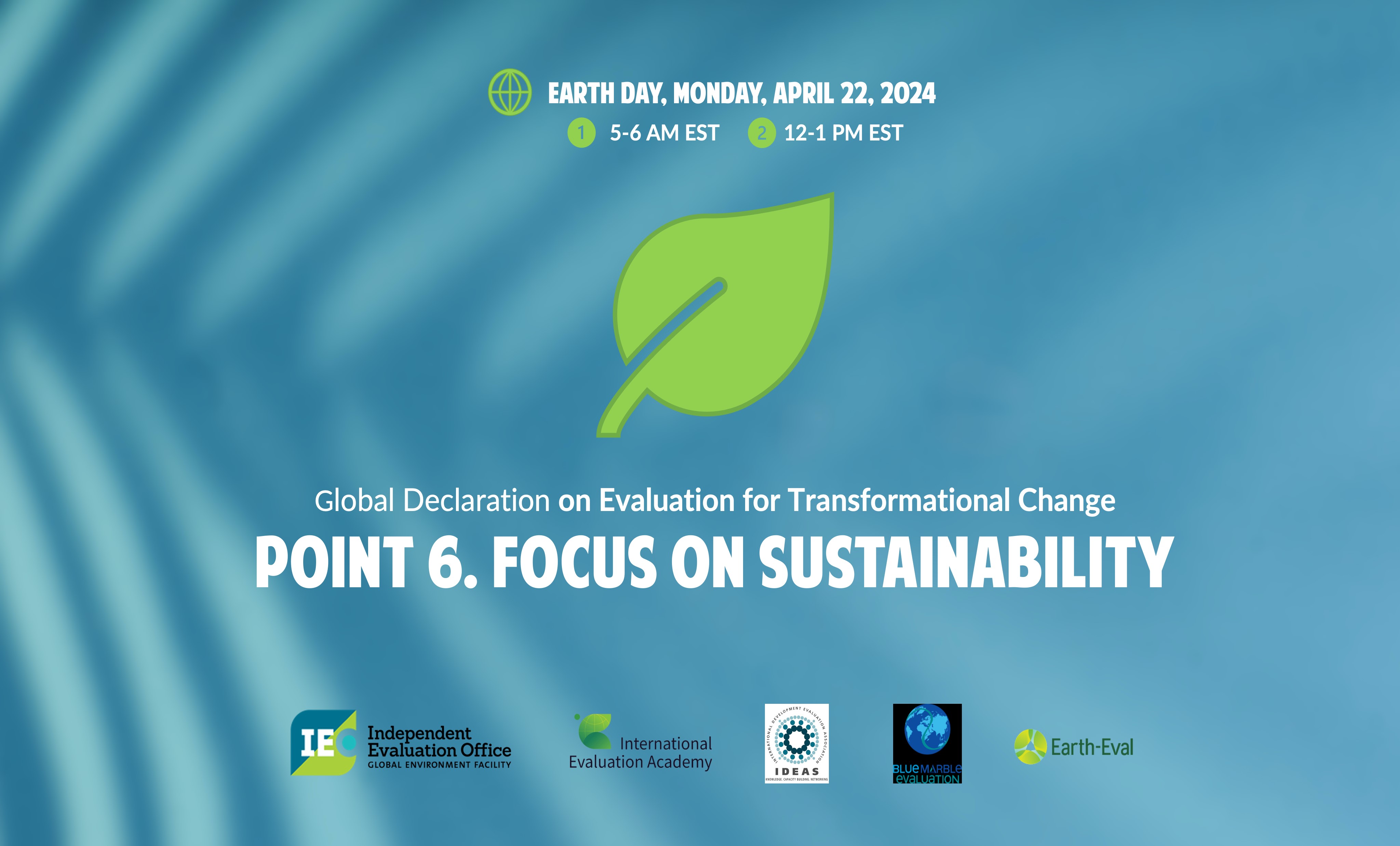Happy Earth Day!!!
Earth Day serves all of us as an annual reminder of the critical need for action to protect and preserve our environment. And you are here because you clearly care about the future! And you are here because you clearly believe that evaluation has a role to play. Yes, as evaluators, we have the privilege and the duty to assess the effectiveness of various environmental initiatives, to review progress against the various goals that countries and organizations commit to, and to provide insights that can drive meaningful change.

And it's not just about counting trees or measuring emissions (although that's part of it). It's about understanding the big picture - how everything in our world is connected, from the air we breathe to the food we eat. And that's where our job as evaluators gets interesting. We're like detectives, piecing together clues to solve the mystery of how we can live in harmony with nature - how do natural and human systems interact. In our role as evaluators, we are tasked with asking the tough questions. Are our conservation efforts yielding the desired results? Are we effectively reducing our carbon footprint? Are marginalized communities disproportionately affected by environmental degradation?
As we seek to answer many of these questions, we must not only assess progress towards individual goals but also consider the broader systemic impacts of our actions. We need to adopt a holistic perspective that recognizes the interconnectedness of environmental, social, and economic systems, and the synergies and trade offs. By adopting systems thinking, we can uncover the underlying complexities and identify leverage points for transformative change.
You have probably heard about the Sustainable Development Goals. They provide a framework for such holistic action, offering a roadmap for addressing the interrelated challenges of poverty, inequality, and environmental degradation.
But more than providing a framework, they're a reminder that we're all in this together. Environmental issues don't stop at borders, so it's up to us to lend a hand to those who need it most and those most vulnerable to the impacts of environmental degradation. By demonstrating what works, when, how and why, we, the evaluation community, can share the knowledge generated through evaluation with countries to drive innovation and design better programs.
At the GEF IEO we have a few evaluation tools and guidance to help you with evaluating environmental projects and programs as mentioned on this slide. We will also be rolling out an online training program.
So, on this Earth Day, let's raise a glass (or a reusable water bottle) to our planet and all the amazing things it does for us. And let's recommit ourselves to being good stewards of the Earth, because after all, it's the only one we've got. Happy Earth Day!!



